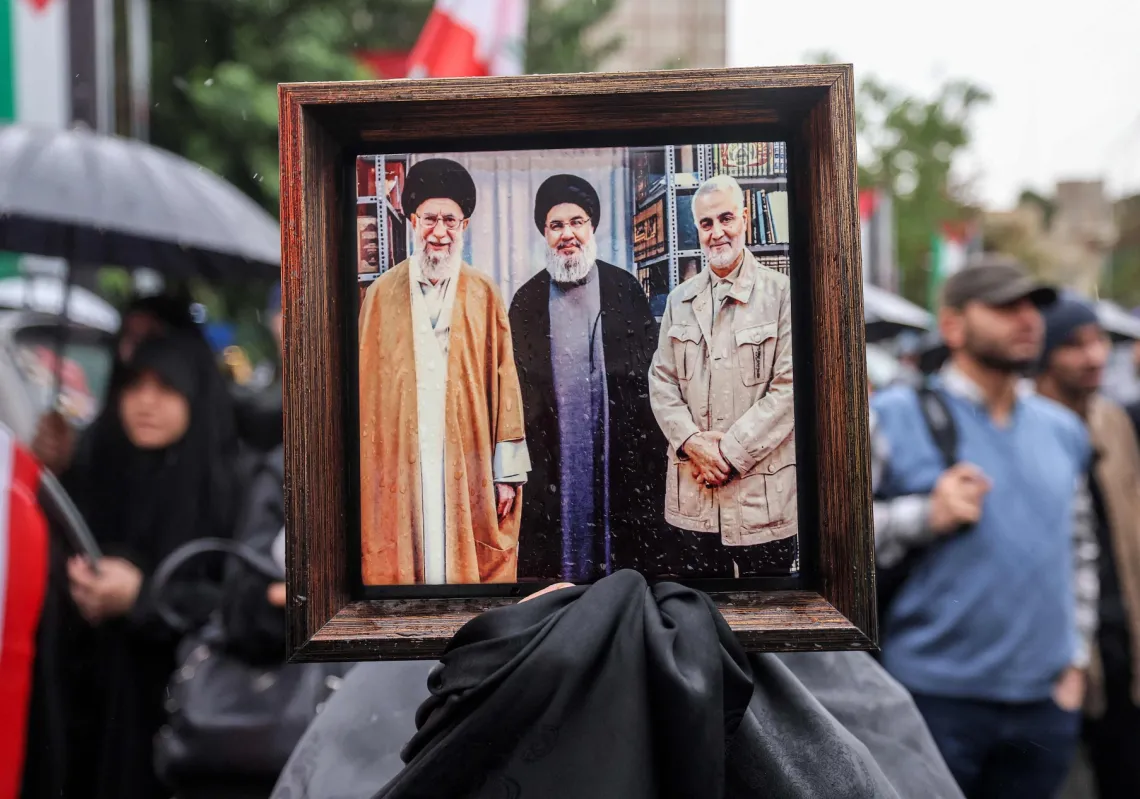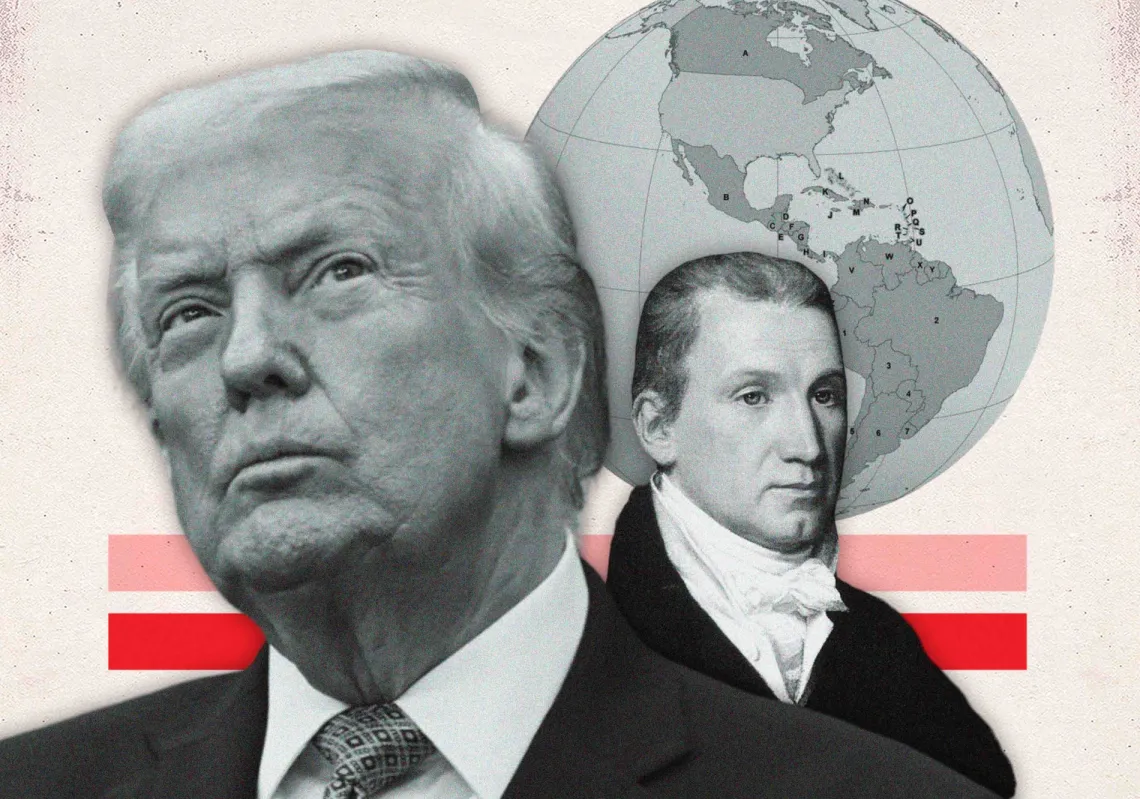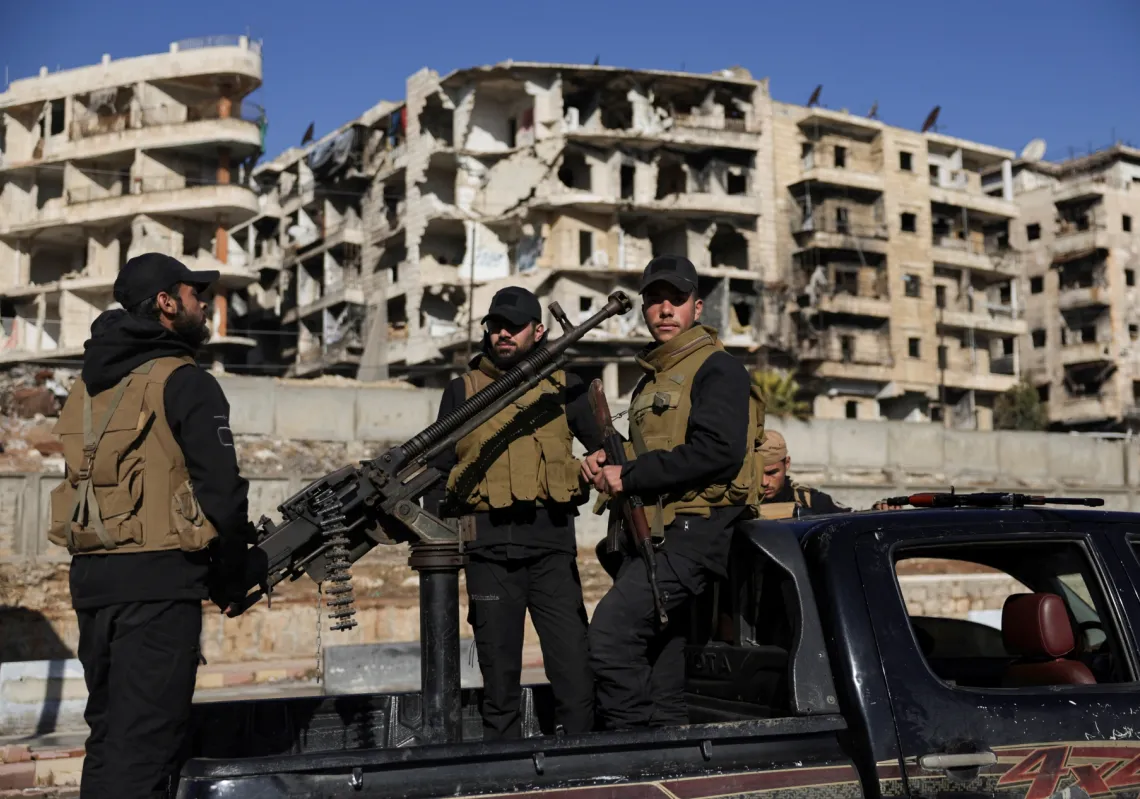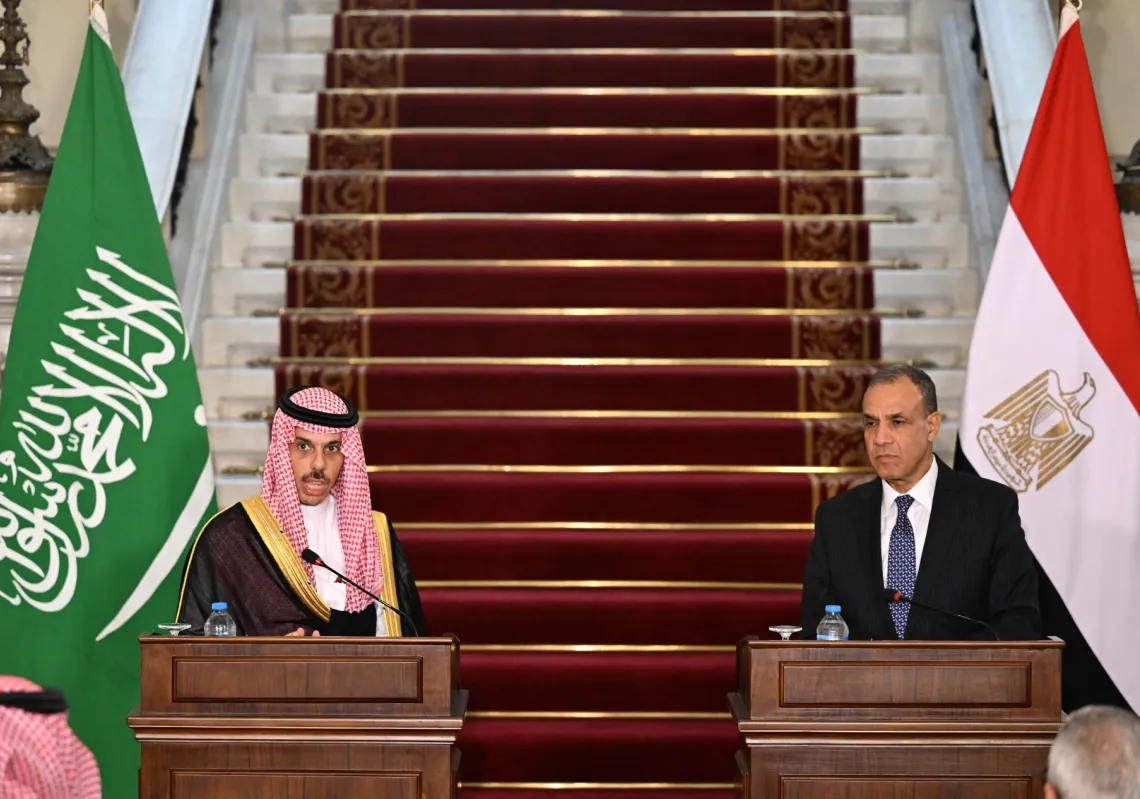 Supporters of the Houthi movement raise their weapons during a gathering in the capital Sanaa, on August 24, 2017, to mobilize more fighters in the conflict against pro-government forces.(Getty)[/caption]
Supporters of the Houthi movement raise their weapons during a gathering in the capital Sanaa, on August 24, 2017, to mobilize more fighters in the conflict against pro-government forces.(Getty)[/caption]
by Joseph Braude*
Prospects for a hot war between Iran and Israel as well as heightened Iranian proxy warfare in Arab lands increased this week as words escalated and violence flared, both inside Iran and across the region.
The global context: Last month U.S. President Donald Trump signed another 120-day sanctions waiver for the Iranian nuclear deal, but warned that if the deal’s other signatories did not renegotiate some of its terms, he would effectively end the deal at the waiver’s next go-around in May.
Media coverage of European diplomatic efforts since then speaks to an ongoing international campaign to satisfy him.
On February 19, the Wall Street Journal reported that on the sidelines of the recent Munich Security Conference, diplomats from Italy, Germany, the UK, and France met with Iran’s deputy foreign minister, Abbas Araghchi, to discuss Iranian involvement in Yemen. The report indicated the session was part of a broader push “to check Iranian activity in Yemen, Syria and other parts of the Middle East as a way to show U.S. President Donald Trump that Iranian expansion can be reversed while sticking with the nuclear agreement.”
EUROPEAN INCENTIVES TO PLACATE TRUMP
It has been widely observed that Europeans harbor financial in addition to geopolitical motivations to deliver a reformed nuclear agreement to the American president. EU member states moved rapidly after the signing of the JCPOA to ink deals with Iranian oil and other enterprises, and numerous European companies have since deployed to Iranian territory. Should the U.S. reinstate sanctions on Iran, European banks involved in such transactions may lose their access to the American financial system. Such is the legacy of 2010 Congressional legislation whereby, in addition to companies that do business with Iran, foreign banks that have established a relationship with designated Iranian banks would lose their access to banks in the U.S. To be sure, there has also been European pushback on this threat: Last September, EU’s ambassador to the United States, David O’Sullivan, warned that the EU would consider reinstating regulations ordering European businesses to defy the American ruling. Germany has also been particularly steadfast in establishing heightened cooperation with Iran on a range of issues, from sports and science to nuclear safety issues.
But Richard Goldberg, who served as lead Senate Republican negotiator for several rounds of congressional sanctions on Iran, opines that the likes of O’Sullivan’s threat to bust sanctions is empty. In his estimation, the UK, France, and Germany could take steps to satisfy the Trump Administration by agreeing to reject the nuclear deal’s sunset clauses when they come up in the future. In terms of renegotiation with Iran, they could seek inspections of Iranian military installations and address Iran’s continuing construction and testing of ballistic missiles.
[caption id="attachment_55255565" align="aligncenter" width="5568"]
 A kamikaze drone is seen on display after US Ambassador to the United Nations Nikki Haley unveiled previously classified information intending to prove Iran violated UNSCR 2231 by providing the Houthi rebels in Yemen with arms during a press conference at Joint Base Anacostia in Washington, DC, on December 14, 2017. (Getty)[/caption]
A kamikaze drone is seen on display after US Ambassador to the United Nations Nikki Haley unveiled previously classified information intending to prove Iran violated UNSCR 2231 by providing the Houthi rebels in Yemen with arms during a press conference at Joint Base Anacostia in Washington, DC, on December 14, 2017. (Getty)[/caption]
ESCALATION AND CONFRONTATION
In any case, the ongoing European diplomatic efforts have been accompanied by a drumbeat of further warnings from the U.S., its major Middle Eastern allies, and others that Iranian interventionism in the region has only grown. On February 15, America’s UN Ambassador, Nikki Haley, spotlighted Iran’s provision of short-range ballistic missiles and drones to Houthi rebels in Yemen and called for a tough international response. At the Munich Security conference two days later, U.S. National Security Advisor HR McMaster warned that Iran is expanding its “Hezbollah model” by providing “more and more capable destructive weapons” to its Arab proxies. “The time is now, we think, to act against Iran,” he said. Meanwhile, last Sunday, Saudi foreign minister Adel al-Jubeir asserted that since the signing of the nuclear accord, Tehran had “doubled down” on activity beyond its borders. He also told an interviewer on the American news channel CNBC that “the most dangerous nation behind cyber attacks” is “Iran … the only country that has attacked us repeatedly and tried to attack us repeatedly. In fact they tried to do it on a virtually weekly basis.”
The same day in Munich, Israeli Prime Minister Benjamin Netanyahu addressed Iranian Foreign Minister Javad Zarif directly in a speech about Iran’s unprecedented foray into Israel the previous week. By way of context, last Saturday, using its new airbase in the Syrian province of Homs, Iranian forces launched an armed drone into Israel. After intercepting the drone, the Israeli air force attacked 15 targets in Syria, including the base and command center from which the drone was launched and several Syrian missile batteries. In Munich during his speech, the Israeli prime minister held up a piece of the Iranian drone which had crossed into his territory. “Here’s a piece of that Iranian drone,” he said, “or what’s left of it after we shot it down. I brought it here so you can see for yourself. Mr. Zarif, do you recognize this? You should. It’s yours.” The Israeli leader then issued a blunt warning: “Israel will not allow Iran’s regime to put a noose of terror around our neck. We will act if necessary, not just against Iran’s proxies that are attacking us but against Iran itself.”
It bears noting in this context that even Iranian ally Russia has lately rebuked Tehran. At a panel discussion in Moscow last week in which the Iranian foreign minister was seated on the dais, his Russian counterpart, Sergey Lavrov, said, “We have stated many times that we won’t accept the [Iranian] statements that Israel, as a Zionist state, should be destroyed and wiped off the map. I believe this is an absolutely wrong way to advance one’s own interests.”
[caption id="attachment_55255564" align="aligncenter" width="4474"]
 Israeli Prime Minister Benjamin Netanyahu holds up what he claims is a piece of an Iranian drone that was shot down after it flew over Israeli territory at the 2018 Munich Security Conference on February 18, 2018 in Munich, Germany. (Getty)[/caption]
Israeli Prime Minister Benjamin Netanyahu holds up what he claims is a piece of an Iranian drone that was shot down after it flew over Israeli territory at the 2018 Munich Security Conference on February 18, 2018 in Munich, Germany. (Getty)[/caption]
THE RESPONSE FROM TEHRAN
For Iran’s part, the leadership has made it clear through word and deed that it has no intention of reducing its Middle Eastern interventionism.
With respect to Israeli responses to the Iranian drone incursion, Mohsen Rezaie, Iran’s expediency council secretary, declared: “About Netanyahu's unwise words, I should say that if they carry out the slightest unwise move against Iran, we will raze Tel Aviv to the ground and will not give any opportunity to Netanyahu to flee.”
As to Iran’s involvement in Arab countries, a new video by Supreme Leader Ali Khamenei, promulgated via his website and official Twitter feed, serves to showcase the logic of Iran’s actions — or at least, the logic Iran wishes to communicate to the international community. He is seen delivering a sermon in which he derides the White House as seeking to “take away the means of the Islamic Republic’s national power.” A “crucial element of national power,” he goes on to say, is “the powerful presence of the Islamic Republic within the region.” Then, in an apparent response to European efforts to reduce Iran’s regional interventions, Khamenei adds, “The Europeans declare that they want to discuss Iran’s presence in the region. Well, actually, we should discuss your presence in the region! Why do you yourselves want to be present in this region?” Finally, Khamenei personalizes the confrontation with the United States by referring to President Trump as “an unstable man.” The remark is followed by a news clip from an American news channel in which an American psychiatrist says, “We could not create a leader more dangerously mentally ill than Donald Trump. He’s a paranoid, psychopathic man.” Khamenei then says, “Presently, they are speaking about his psychotic episodes and the fact that he needs psychiatric treatment. … [American officials] should know that these psychotic outbursts will gain a response.” The audience is seen cheering the sentiment.
On the domestic front, Iran continues to take robust measures to ensure compliance by force to its hardline state ideology. On February 19, Iranian security forces clashed with supporters of Sufi leader Nourali Tabandeh, a one-time deputy justice minister and more recently a supporter of liberal opposition elements. In overnight clashes which resulted in the death of five police, 300 Sufis were arrested. Meanwhile, in the restive Arab-majority province of Al-Ahwaz, ten relatives of Reza Simsar Shahitat, an Iranian national of Arab ethnicity, were arrested as a punitive measure for the latter’s alleged conversion from Shi’ism to Sunni Islam.









